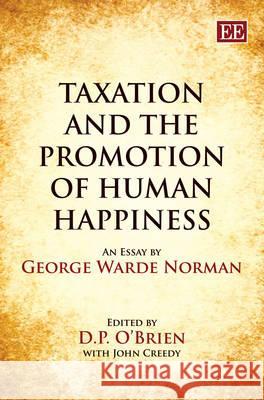Taxation and the Promotion of Human Happiness: An Essay by George Warde Norman » książka
Taxation and the Promotion of Human Happiness: An Essay by George Warde Norman
ISBN-13: 9781848444850 / Angielski / Twarda / 2009 / 256 str.
George Warde Norman was a Director of the Bank of England from 1821 to 1872, a key figure behind the Bank Charter Act of 1844, and one of the founders of the Political Economy Club. In 1821 G.W. Norman began an essay on taxation as part of the utilitarian programme. His vision was of increased human happiness through a wholesale reform of the revenue system founded upon direct taxation in the form of a comprehensive property tax. He continued to work on the essay over many years, never losing his faith in the utilitarian ideal or his belief in the property tax solution as the key to fiscal happiness. This book represents G.W. Norman's final thoughts, themselves a manifestation of a significant element in the development of nineteenth century policy and institutions. This edition of a hitherto unknown work demonstrates the importance of utilitarianism to liberal thinking on taxation. As such, this unique book will appeal to specialists in the history of economic thought and to historians, especially those with an interest in the history of public finance, an area in which G.W. Norman's contribution has been almost entirely overlooked. Providing a new and previously unexploited source, it should also prove to be a fascinating read for postgraduates working in these fields.











